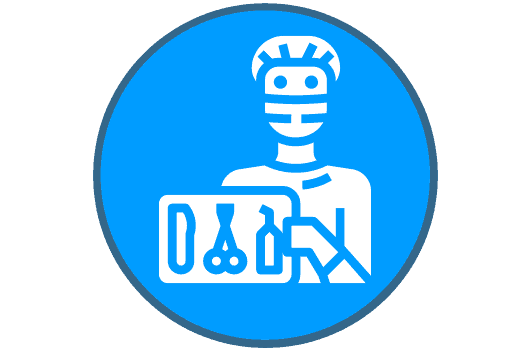What is Covered in a Surgical Assistant Program and What Does a Surgical Assistant Do?
In a surgical assistant program, students learn about surgical assessment, patient transport, sterile care, medical informatics, The Joint Commission requirements, infection control, assisting in the operating room, surgical assisting, pre-operative evaluations, post-operative evaluations, and medical informatics.
A surgical assistant’s main responsibility is to assist a medical professional who is performing a procedure. They work closely with a surgical team and assist with patient preparation, preparation of the room, and the recovery process for a patient.
Surgical assistants perform administrative, technical, and supportive duties with an operating team. They also work with surgical team members to assist with patient care, equipment, and supplies.
Specific duties of a surgical assistant include preparing the operating room (i.e. setting up an OR table, interrupting the operating room light), securing the patient to the surgical table, washing the patient before surgery, preparing sterile instruments, preparing trays of sterile instruments, transporting supplies to surgeons stationed at various points in the operating room, preparing all surgical trays before the surgery, assisting with anesthesia, translating the surgeon’s instructions to the surgical team, monitoring operating room equipment, holding retractors, tying surgical knots, cutting sutures, suturing, counting sponges, instruments, drains, and sutures, helping to transport patients to post-operative recovery, and assisting with patient transfers.
How do you become a Surgical Assistant? What is the required education and training in order to gain employment as a Surgical Assistant?
In order to become a surgical assistant, one would need to earn a degree from a surgical assisting school. There are a number of schools that offer a degree in surgical technology that one can complete in 2 years. These specific programs will cover areas such as medical terminology, anatomy, and surgical math. One would also need to complete a two-year externship in a hospital setting.

